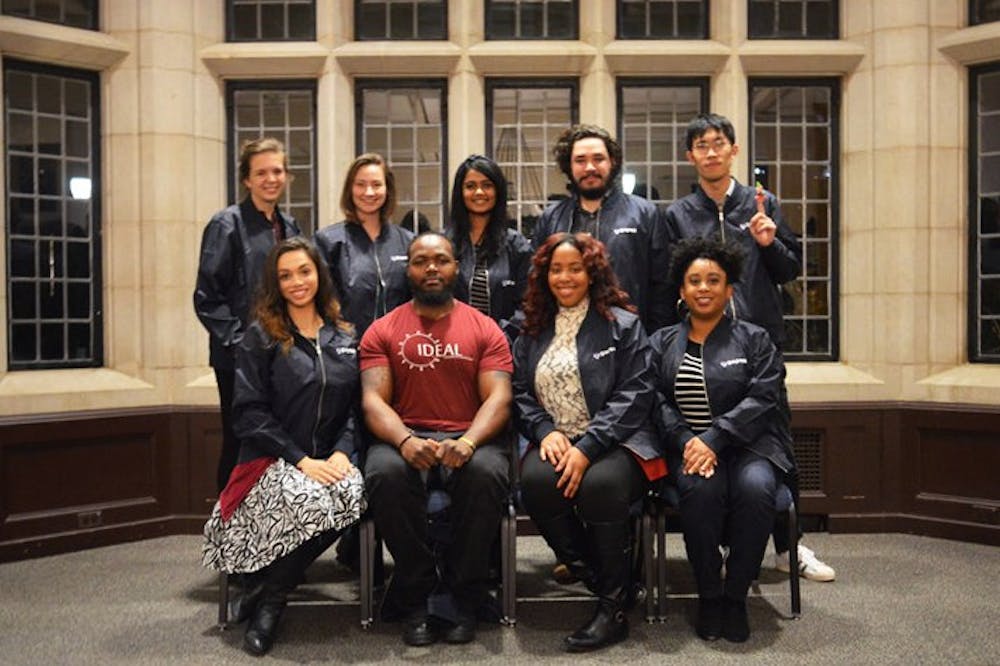
Officials say the prospect of creating a central diversity office is "under consideration" despite previously saying that Penn had no plans to create a physical space for a centralized office.
This comes amid a year-long student campaign led by the Graduate and Professional School Assembly, which introduced the proposal and also put forth another proposal to instate an online bias reporting form, which administrators say should launch by the end of April.
"We have not changed the position that this is something that should be considered," Senior Vice President for Institutional Affairs and Chief Diversity Officer Joann Mitchell wrote in an emailed statement on March 29. "We have begun a process to determine whether creating a central diversity office or providing enhancing coordination of existing resources is best for Penn."
This, however, seems to diverge from Mitchell’s October 2017 statement to The Daily Pennsylvanian when she stated that Penn had no plans to create a physical office.
"We said we would create a centralized chief diversity officer, and that’s what we did," Mitchell said in October, referring to her appointment as inaugural chief diversity officer in March 2017. “It’s not an office."
In contrast, Mitchell’s most recent statement said that the University has already started researching whether or not to create a central diversity office. She did not specify when this process began or when it is expected to reach a conclusion.
Graduate students have been pushing for a central diversity office and a bias incident reporting form since February 2017, when GAPSA unanimously voted to establish an office with a full-time staff to help “underrepresented students” across Penn. GAPSA’s Inclusion, Diversity, Equity, Access and Leadership Council, which put forth the resolution, has been campaigning for the past year.

IDEAL Chair and sociology Ph.D. candidate Haley Pilgrim said that Mitchell’s recent statement was “really exciting.”
“Even if vague, a statement of progressing forward is definitely a win for us in IDEAL,” Pilgrim said. “It’s exciting to know that there’s a potential.”
In addition to a potential central diversity office, Mitchell wrote that Penn is introducing another suggestion from GAPSA's February 2017 resolution — an online bias incident reporting form. According to Mitchell, the University-wide form will allow students to report events like discriminatory harassment and sexual misconduct.
Mitchell wrote that the form is currently in a “test phase," and should appear on the University’s diversity website by the end of April.
Pilgrim – who will officially assume her role as GAPSA’s first black woman president on May 1 — said that IDEAL teamed up with student activists to create and publicize an earlier version of the form in 2016, after students at the University of Oklahoma created a racist GroupMe chat targeting black freshmen at Penn.

IDEAL Advocacy Chair Brie Starks, who is in her final year at the School of Social Policy and Practice, said that despite the administration’s monthly meetings with IDEAL and the upcoming bias reporting form, many students — particularly students of color — still face “a plethora of challenges not addressed through the current centers and offices” at Penn.
Starks said this was “disheartening” to see after “tirelessly” working on issues of diversity and inclusion at Penn this past academic year.
“Our demand remains clear and that is to create a central diversity office that not only addresses situations of implicit bias, but the many concerns that speak to the intersectionality of students at Penn,” Starks said. “As a soon-to-be alumni, I will continue to make this need for a central diversity office clear.”
Currently, Penn offers various decentralized resources for members of the Penn community to either file complaints with resource officers, or utilize campus resource centers like Makuu, La Casa Latina, and the Penn Women’s Center. In addition, there is a hotline for making complaints about violations of University policy.
"Over the last decade in different ways, different organizations on campus have been asking for a centralized diversity resource," Pilgrim said. "It's exciting to know that there's a potential."
The Daily Pennsylvanian is an independent, student-run newspaper. Please consider making a donation to support the coverage that shapes the University. Your generosity ensures a future of strong journalism at Penn.
Donate




